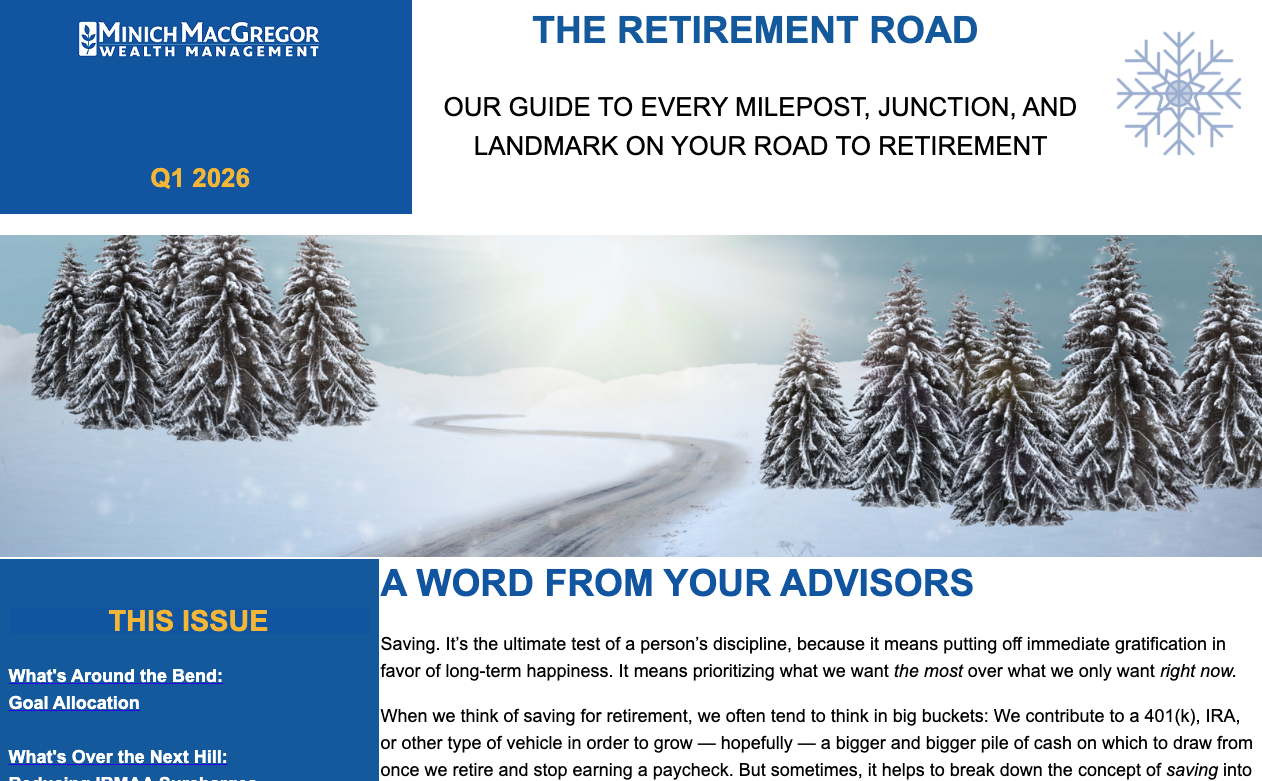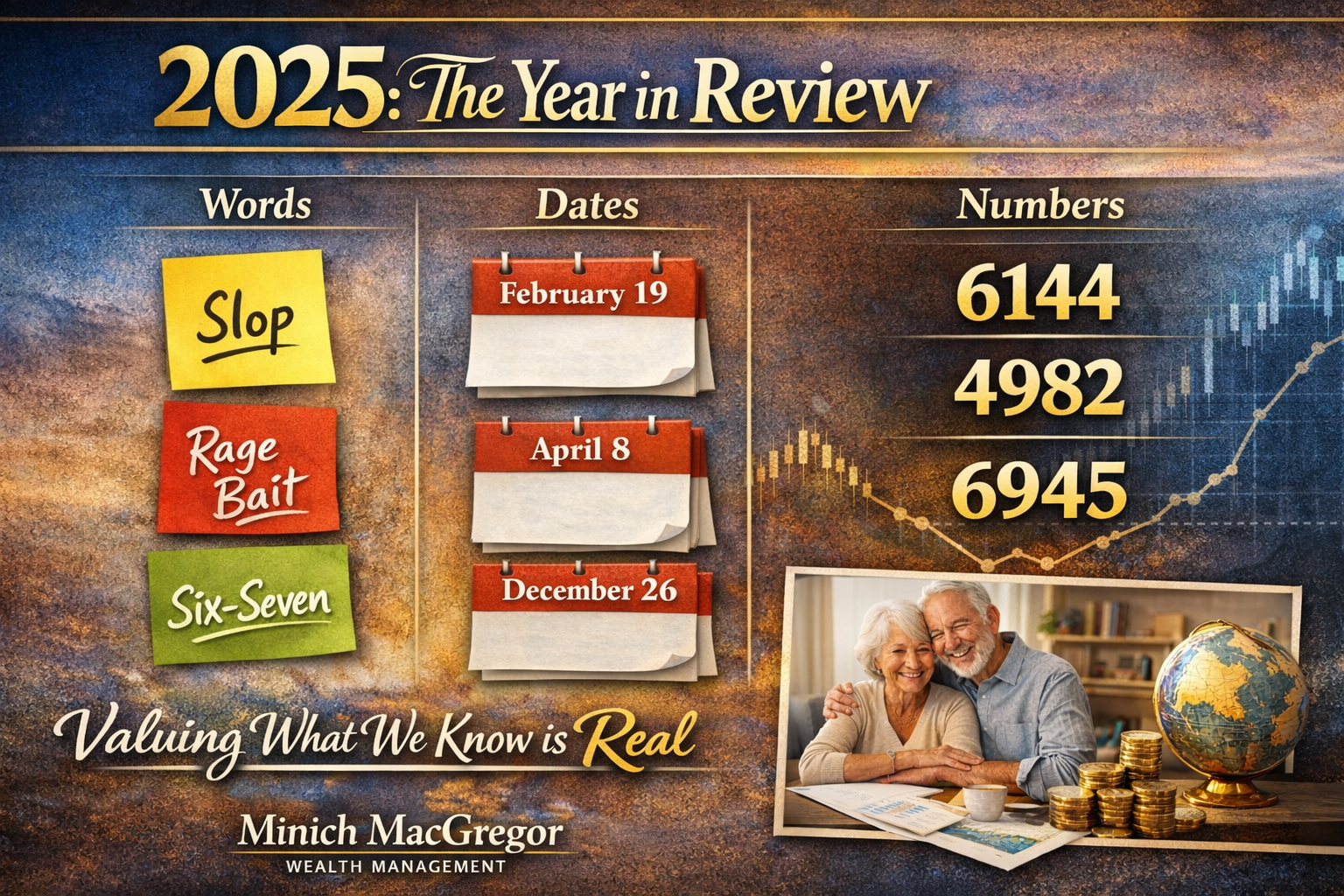Middle East Conflict Market Impact: What Investors Should Expect
On Saturday, February 28, the United States and Israel launched joint airstrikes on Iran. As part of this operation, Iran’s supreme leader, Ali Khamenei, was killed. As you can imagine, this has caused an upsurge in market volatility — particularly the oil markets.
We want to assure you that our team has spent a lot of time analyzing the situation and how it might impact you. We’ll go over some of the details in a moment, but the most important thing for you to know is that we are keeping a close eye on everything. We remain confident in our investment strategy and in the path to your financial goals.
Because we are financial advisors, not geopolitical experts or military strategists, we’re going to refrain from commenting on the conflict itself and focus instead on its financial ramifications. Before continuing, though, we do want to say that our thoughts are with our armed forces and the innocent civilians in the region. So, while this message will focus on the economic side of the conflict, let us all remember that nothing compares to the human side.
With that said, let’s now turn to the central question: How will this conflict affect the markets?
Nobody has a crystal ball, including us. But when it comes to geopolitical events, the markets typically react in a fairly consistent way. First, there is the initial reaction. The most risk-averse investors tend to sell, and quickly. Fighting brings disruption — to both production and trade — and disruption brings uncertainty. Uncertainty, of course, is the ultimate cause of nearly all volatility.
Next, one of two things often happens. In some cases, the conflict resolves quickly and events normalize. In this case, the markets often rebound after their initial drop as investors seek to get back into the markets, or as those who stayed in seek out opportunities to buy at lower prices.
On the other hand, even if the conflict does not end quickly, investors, after digesting the news and its implications, will often treat it as merely one factor among a myriad of factors that influence the markets. We may already be seeing signs of that now. (On Monday, March 2, the major indices all fell early in the day, only to recover their losses by the afternoon.1) Sometimes this “digestion” can take merely days. Other times, it may last weeks or even months. But in both scenarios, volatility eventually settles down.
For these reasons, geopolitics tends to have a surprisingly short-lived effect on the markets. For example, take the Cuban Missile Crisis. The world has never been closer to nuclear war than during those nerve-wracking thirteen days in 1962, yet during that time, the Dow only fell 1.2%. By the end of the year, the Dow was up 10%.2
For two examples from the Middle East, consider when Iraq invaded Kuwait back in 1990, which triggered the Persian Gulf War. The Dow declined more than 18% in the immediate aftermath – only to recover completely a few months later.3 More recently, when Israel struck Iranian bases and nuclear facilities last year, the stock market slid sharply but recovered quickly.
This phenomenon is common not just for stocks, but also for other markets. When Russia invaded Ukraine in 2022, energy prices skyrocketed. (Russia is a large source of both oil and natural gas, and international sanctions put a limit on how much the Western world can import both.) But a year later, the oil market had “fully absorbed” the invasion’s impact, and prices returned to more normal levels.4
Now, we wish we could simply wrap up this message here. But while the markets typically shrug off geopolitics, that doesn’t mean we don’t need to pay attention to what’s going on. Because while the past offers lessons for the present, it is no guarantor of the future.
Unlike last year, when Israel struck Iranian facilities, this is a more significant conflict. The scale is much larger. The consequences are already more significant. Iranian counterattacks have also struck other nearby countries like Saudi Arabia, Qatar, Kuwait, and the United Arab Emirates. For these reasons, it’s impossible to say how long the fighting will last or if it will widen. If it does, investors may be forced to process a continuing stream of ever-changing news rather than one single event.
In the meantime, the biggest question mark is what this all means for oil prices. Consider:
- Iran produces 4.5% of the world’s oil and shares the largest natural gas reserve in the world.5
- More importantly, Iran controls the north bank of the Strait of Hormuz. This waterway is one of the world’s most crucial arteries for delivering oil and natural gas. According to the U.S. Energy Information Administration, an average of 20.9 million barrels of oil pass through the strait every day — about 20% of the world’s total consumption.6
- As part of the conflict, Iran has struck multiple energy facilities in nearby countries, forcing them to suspend production. Some of the world’s major shipping companies have also suspended activity in the strait until further notice.
Now, it’s important to note that, as of this writing, the Strait is not completely closed — and any closure would likely be temporary. But even temporary interruptions to production and trade can cause oil prices to spike. This matters because higher energy prices can lead to higher shipping and travel costs, food prices, and supply chain snarls. Furthermore, all these price hikes can affect everything from inflation to interest rates to corporate earnings, thereby potentially denting the stock market.
The takeaway, then: While conflict rarely causes long-term pain in the markets, we should certainly be prepared forpossible heartburn in the short-term.
But here is what’s always so important to remember during times like these: Conflict means change and change means uncertainty.
Uncertainty triggers overreaction.
That’s why so many investors tend to lose money during periods of volatility: they make long-term decisions based on short-term emotions and events. The situation in the Middle East will likely change every day, hour, and even minute. Headlines we read in the morning might be obsolete by afternoon. That’s why it makes no sense when investors panic or make decisions under the fog of uncertainty. By the time they do, the situation they’re reacting to may have already passed!
For these reasons, the single best thing we can do is to simply hold on to our overall strategy and avoid overreacting, no matter how many headlines prompt us to do so.
With that in mind, we want you to know that our team continuously analyzes new information and market developments as they unfold. Should conditions warrant, we are prepared to act—either to capitalize on potential opportunities or to help mitigate risk in a thoughtful, disciplined manner.
If you have any concerns, questions, or uncertainties about the current environment, we welcome the opportunity to speak with you. While it is easy to say, “Don’t make decisions based on emotion,” we also recognize that market volatility can create very real and understandable feelings. Our role is to help you process those concerns with clarity and perspective, ensuring that any decisions are made carefully and strategically.
We are always available to discuss your goals and how current conditions may affect them. In the meantime, we hope you find this information helpful. If we do not connect before then, we wish you a productive rest of the month and a wonderful start to the spring season. Please feel free to reach out if there is anything we can do to assist you.to the spring season. Please feel free to reach out if there is anything we can do to assist you.
1 “S&P 500 turns positive in dramatic comeback,” CNBC, www.cnbc.com/2026/03/01/stock-market-today-live-update.html
2 “How Markets Respond to Geopolitical Crises,” A Wealth of Common Sense, awealthofcommonsense.com/2017/06/how-markets-respond-to-geopolitical-crises/
3 “Stock Market History: More Ups Than Downs,” Forbes, September 27, 2017. www.forbes.com/sites/johndobosz/2017/09/20/stock-market-history-more-ups-than-downs/?sh=71324c093951
4 “Oil market has fully absorbed impact of Russia’s invasion of Ukraine,” Reuters, www.reuters.com/business/energy/oil-market-has-fully-absorbed-impact-russias-invasion-ukraine-kemp-2023-03-09/
5 “Iran’s main oil and gas production and infrastructure,” Reuters, www.reuters.com/world/middle-east/an-overview-irans-energy-industry-infrastructure-2026-02-28/
6 “The Strait of Hormuz crisis explained,” CNBC, www.cnbc.com/2026/03/02/strait-of-hormuz-crisis-us-iran-israel-war-shipping-trade-oil.html


















